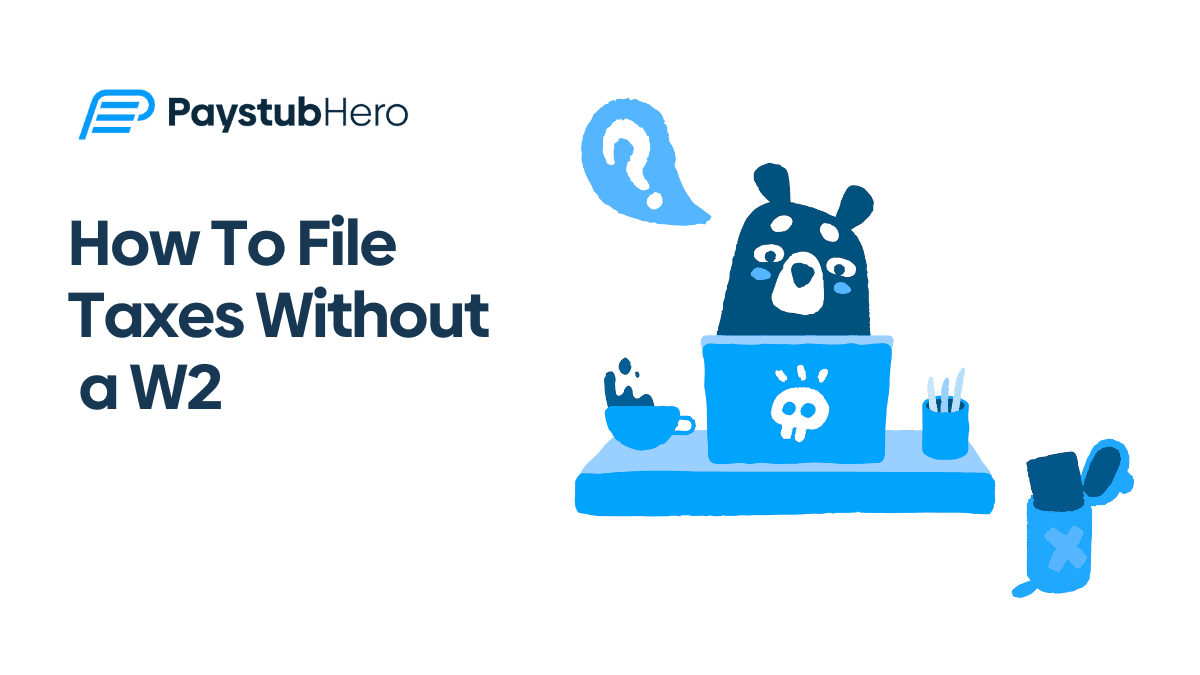Holidays are the rhythm of our lives, marking the passing of time with celebrations that uplift our spirits and create cherished memories. From New Year’s festivities in chilly January to warm Easter celebrations in spring, they break the monotony of our daily routine and offer a chance to recharge and rejuvenate.
But there’s another side to holidays that is often overlooked, particularly when these special days land squarely within the workweek. That raises the question: are employers obligated to offer paid holidays?
As you navigate the ebbs and flows of your work-life balance, understanding your rights and your employer’s responsibilities can provide peace of mind and ensure fair treatment.
Therefore, we’ve crafted this comprehensive guide to answer the burning question: are there paid holidays mandated by law?
Before we dive in, it’s important to note that holiday rights can be a complex topic, largely due to variations in laws from one region to another.
This guide primarily focuses on the U.S., providing insights into the complex tapestry of federal, state, and company policies that come into play.
Table of Contents
- Introduction
- Unpacking Paid Holidays By Law: A Deeper Look
- When To Work: A Balancing Act in Navigating Business Needs and Employee Morale
- Understanding Holiday Pay: An Additional Benefit, Not a Legal Obligation
- January Holidays: More Than Just New Year’s Day, Navigating the Beginning of the Year
- Is Easter a Federal Holiday? Debunking Common Misconceptions
- Making Sense of Paid Holidays: Unraveling the Complexities and Ensuring Clarity
- How Paystubhero Can Help: Simplifying Payroll for Small Businesses and Entrepreneurs
- Conclusion
Unpacking Paid Holidays By Law: A Deeper Look
Often, there is confusion about employees’ rights regarding paid holidays. Some may believe that paid holidays are a guaranteed benefit, while others may not be sure of their rights at all. Therefore, it’s crucial to understand what the law states about paid holidays and how it affects the relationship between employers and employees.
In the United States, the legal landscape does not mandate private sector employers to offer paid holidays. This absence of a federal law means that offering paid holidays falls under discretionary benefits.
In simpler terms, companies may choose to include paid holidays in their compensation packages, but they are not legally obligated to do so.
However, before you arrive at any conclusions, it’s worth noting that the landscape of labor laws is complex and multifaceted. Paid holidays can be influenced by various factors such as company policies, employment contracts, and state laws.
Our exploration doesn’t end here. Let’s delve deeper to comprehend how these dynamics play out when it comes to determining when employees work, the implications on holiday pay, and the specific contexts of January holidays and Easter.
When To Work: A Balancing Act in Navigating Business Needs and Employee Morale
When it comes to the question of when employees are expected to work, particularly during holidays, a multitude of factors come into play. Businesses must strike a balance between meeting operational requirements and maintaining a motivated and content workforce.
While employers are not legally bound to provide paid holidays, many companies opt to do so. The reason? Paid holidays can boost employee morale, enhance job satisfaction, and contribute to creating a more productive work environment.
Moreover, in a competitive job market, offering paid holidays can help a company stand out as an attractive place to work.
Work schedules during holidays often hinge on various factors, such as the nature of the business, operational needs, peak business cycles, and industry norms. For instance, a retail business may necessitate employees to work on days like Black Friday, one of the busiest shopping days of the year following Thanksgiving.
In such cases, companies often provide additional incentives, like holiday pay, to their workforce.
Understanding Holiday Pay: An Additional Benefit, Not a Legal Obligation
One of the key components of the holiday work puzzle is holiday pay. This term often sparks a range of questions: What is holiday pay? How does it differ from regular pay?
Are employers required to provide it? Let’s delve into these details to gain a more nuanced understanding.
Holiday pay typically refers to the compensation provided to employees who work on recognized holidays, often at a higher rate than their usual pay. This additional benefit serves as an incentive for employees who sacrifice their holidays for work. It’s a gesture of goodwill, showing appreciation for their dedication.
However, it’s essential to underscore that providing holiday pay is not a mandate under federal law. Much like the provision of paid holidays themselves, holiday pay is entirely discretionary, and employers choose whether to offer it based on their company policies, business needs, and competitive landscape.
The practice of providing holiday pay is widespread, as evidenced by a 2020 survey by the Society for Human Resource Management.
The study found that a staggering 90% of U.S. companies offered paid time off for six major holidays: New Year’s Day, Memorial Day, Independence Day, Labor Day, Thanksgiving, and Christmas.
January Holidays: More Than Just New Year’s Day, Navigating the Beginning of the Year
When you think about January holidays, the one that likely springs to mind is New Year’s Day, a time of celebration, reflection, and resolution. However, January hosts another significant holiday that often goes unnoticed in workplace discussions: Martin Luther King Jr. Day.
Martin Luther King Jr. Day is a federal holiday observed on the third Monday of January, celebrating the life and achievements of the influential American civil rights leader. It’s a day of service, reflection, and community-building, dedicated to promoting equal rights for all Americans.
While federal employees receive paid time off for this day, the situation differs for private sector employees. The provision of paid holidays, including Martin Luther King Jr. Day, is not a legal requirement for private companies.
Thus, whether employees get the day off, and whether it’s a paid holiday, depends entirely on individual company policies.
So, as we delve deeper into the specifics of January holidays, remember that the dynamics of paid holidays are not just about federal regulations, but also the decisions made by employers.
Is Easter a Federal Holiday? Debunking Common Misconceptions
As we navigate through the calendar year, each holiday presents its own set of characteristics and considerations in the workplace. Easter, a significant holiday celebrated worldwide, often sparks questions regarding its status within the U.S. federal holiday system.
One of the most common misconceptions is that Easter, which falls on a Sunday, is considered a federal holiday. This belief likely stems from the prominence of Easter in many cultural and religious traditions. However, the reality is different and may come as a surprise.
Contrary to popular belief, Easter is not recognized as a federal holiday in the United States. This means that the federal law does not mandate employers to offer paid time off or holiday pay for Easter Sunday.
Therefore, whether an employee gets paid for Easter, like many other aspects of holiday pay, hinges on the specific provisions of their employment contract or the policies of the company they work for.
Thus, understanding the specific context of each holiday, including Easter, is crucial in comprehending the broader landscape of paid holidays by law.
Making Sense of Paid Holidays: Unraveling the Complexities and Ensuring Clarity
The topic of paid holidays, as we’ve seen, is multifaceted, with various factors at play. Navigating through the complexities of federal laws, company policies, and specific holiday contexts can sometimes feel like a daunting task.
However, having a clear understanding of these dynamics is crucial for both employers and employees to ensure fairness and transparency.
While the landscape of paid holidays by law may seem intricate and overwhelming, gaining clarity is possible with the right approach. Start by understanding that the obligation for providing paid holidays lies primarily at the company’s discretion, as there is no overarching federal law mandating it.
Next, it’s crucial to familiarize yourself with your company’s policies and any state-specific laws that may apply. Remember, each company is different, with its own set of rules and guidelines regarding holidays.
Similarly, state laws may provide additional protections or benefits that are not covered at the federal level.
Finally, don’t hesitate to discuss any questions or concerns about holiday work schedules or holiday pay with your Human Resources department. They are there to help clarify any confusion and provide guidance on these matters.
Armed with this knowledge, you can confidently navigate the complexities of paid holidays, ensuring you understand your rights and what you can expect from your employer.
How Paystubhero Can Help: Simplifying Payroll for Small Businesses and Entrepreneurs
After unravelling the intricacies of paid holidays by law, let’s turn our attention to another aspect of business operations that can often seem daunting: managing payroll. Accurate, timely payroll is crucial not only for the financial well-being of your employees but also for the smooth functioning of your business.
But for many small businesses, entrepreneurs, and freelancers, payroll can be a time-consuming and complex process. That’s where Paystubhero steps in.
Paystubhero is an online payroll software designed specifically for entrepreneurs, freelancers, small businesses, and independent contractors. Understanding the unique needs and constraints of these businesses, we offer a robust, affordable solution to make payroll as easy as possible.
With our user-friendly interface, you no longer need to worry about making complex calculations or navigating through complicated software. All you have to do is enter your company and employee information, and Paystubhero handles the rest.
Generating paystubs becomes as easy as 1-2-3, saving you precious time that you can invest back into growing your business.
And the best part? Paystubhero is not only easy to use but also budget-friendly. We believe that efficient payroll management should not be a luxury reserved for big businesses with deep pockets.
Therefore, we’ve designed Paystubhero to be accessible to all, ensuring even the smallest businesses can benefit from professional payroll services.
Frequent Asked Questions
- How many paid federal holidays are there?
- There are 10 federal holidays in the U.S. However, paid holidays for private sector employees are not mandated by federal law and depend on company policy.
- Is holiday pay mandatory in GA?
- No, holiday pay is not mandatory in Georgia. It’s up to each employer to decide whether to offer holiday pay or not.
- What paid holidays are mandatory in Florida?
- Florida does not mandate paid holidays for private sector employees. The decision is at the discretion of the employer.
- What is Illinois holiday pay?
- In Illinois, there’s no state law requiring private employers to provide holiday pay. It’s determined by the employer’s policy or employee contract.








